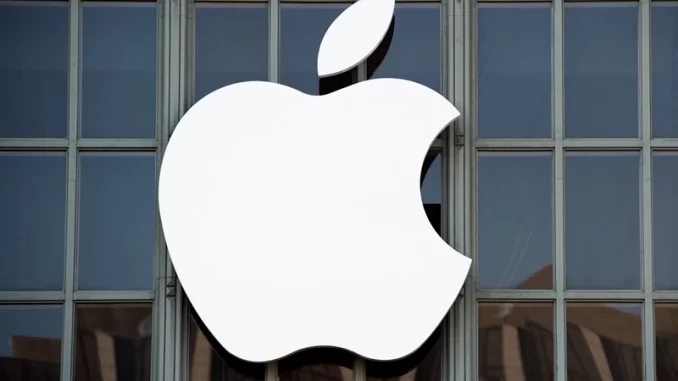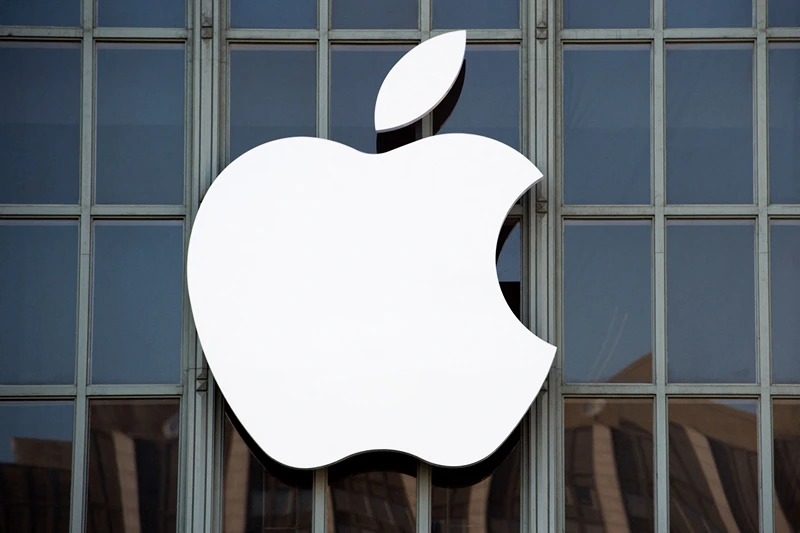

OAN’s Abril Elfi
6:27 PM – Thursday, March 21, 2024
The United States Department of Justice (DOJ) has filed a lawsuit against Apple, accusing the company of monopolizing the smartphone market.
Advertisement
Attorneys general from 15 states and the District of Columbia have joined the civil lawsuit, which charges Apple with limiting its smartphone operating system in a way that raises consumer prices and makes it difficult for developers to successfully release products on other smartphone systems.
“Consumers should not have to pay higher prices because companies violate the antitrust laws,” Attorney General Merrick Garland said in a news release.
They also allege that Apple prevents developers from creating cross-platform messaging apps in order to force users to purchase iPhones.
The Department of Justice (DOJ) drew attention to the common grievance expressed by customers that messages sent from non-iPhone devices appear green rather than the typical blue color of iMessage and have fewer features than messages sent between two iMessage users.
Some Android phone owners have also reported that they can not watch videos in full size if it is sent to them in a text message by someone using an iPhone.
At a press conference on Thursday after the lawsuit was made public, Garland acknowledged Apple’s corporate dominance, pointing out that its market capitalization exceeded the GDP of over 100 nations. However, he said that this was more likely the consequence of Apple’s “exclusionary” business practices than its superior products.
He claimed that Apple has outperformed rival companies “by making other products worse, not by making its own products better.”
Apple refuted the claims and charged government overreach in a statement.
It stated that it was not required to adopt designs or guidelines that rival companies might favor, particularly if doing so would negatively impact the experience of iPhone users.
Apple stated, for instance, that it has not created an iMessage version that works with non-iPhone devices since it would not be able to offer a user experience that is comparable and up to the company’s standards.
“At Apple, we innovate every day to make technology people love—designing products that work seamlessly together, protect people’s privacy and security, and create a magical experience for our users,” it said. “This lawsuit threatens who we are and the principles that set Apple products apart in fiercely competitive markets. If successful, it would hinder our ability to create the kind of technology people expect from Apple—wwhere hardware, software, and services intersect. It would also set a dangerous precedent, empowering the government to take a heavy hand in designing people’s technology. We believe this lawsuit is wrong on the facts and the law, and we will vigorously defend against it.”
A lengthy antitrust case against Facebook parent Meta and a more recent one against Amazon are both pending before the Federal Trade Commission, while the U.S. Justice Department is already suing Google for allegedly monopolizing digital advertising services.
Additionally, the Federal Trade Commission attempted to stop Microsoft’s now-closed acquisition of Activision, a developer of video games, in December.
The lawsuit against Apple is the third effort by an attorney general to take on the tech giant with its headquarters in Cupertino, California.
“This clearly escalates the Biden Administration antitrust efforts against big tech giants and adds to the current ongoing antitrust case against Google and other various cases against Meta and Amazon,” Dan Ives, a managing director and senior equity research analyst at Wedbush Securities, said in an investor note.
The complaint goes on to claim that Apple has a monopoly over a number of other products and services, including web browsers, video chat, news subscriptions, entertainment, automobile services, advertising, and location services.
“For years, Apple responded to competitive threats by imposing a series of ‘Whac-A-Mole’ contractual rules and restrictions that have allowed Apple to extract higher prices from consumers, impose higher fees on developers and creators, and throttle competitive alternatives from rival technologies,” said Assistant Attorney General Jonathan Kanter of the Justice Department’s Antitrust Division. “Today’s lawsuit seeks to hold Apple accountable and ensure it cannot deploy the same, unlawful playbook in other vital markets.”
Stay informed! Receive breaking news blasts directly to your inbox for free. Subscribe here. https://www.oann.com/alerts

